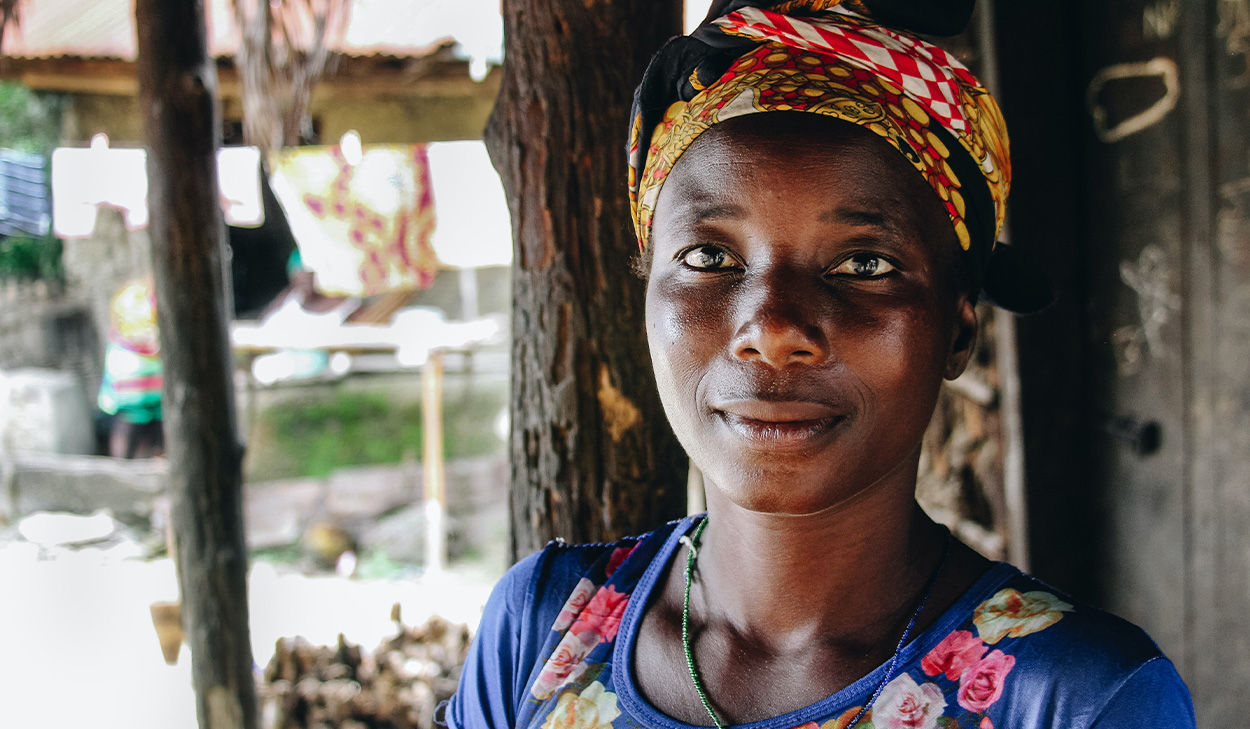
Malia grew up instilled with the knowledge that her role as a woman was to be a good wife no matter what.
She lived in a traditional Muslim culture in East Africa, where women married young and parents did not allow their daughters to pursue a secondary education. Malia’s parents held to the traditional belief that as long as a woman could read, write, and count, there was no need for her to continue going to school.
So when Malia had finished her primary education at age 14, her parents sent her to a camp for girls to be trained to be good wives. Within the camp’s “training” was the ritual exercise of female circumcision, which is believed to make a woman complete. Like the other girls at the camp, Malia did not want to go through with this inhumane ritual. But refusing to do so would mean she would be considered incomplete as a woman and would bring shame to her family.
Malia went through with the painful ritual and participated in the traditional dance afterward that celebrates the women who are circumcised. It is during this ceremonial dance that some men look for their prospective wives.
That is where Malia caught the eye of Banji, a man who was 40 years her senior. Banji, who already had three other wives, went to Malia’s parents to make arrangements for marrying her. Her parents rejoiced that Malia’s “training” had paid off and agreed to let Banji take her as a wife.
Malia met Banji on their wedding day and began what she described as the worst chapter of her life. Banji’s other wives were the age of Malia’s mother and resented this new bride. They harassed Malia and threatened to poison her, kill her, bewitch her, or burn down the house she lived in with Banji.
Malia endured this harassment for two years until Banji died. She didn’t bear any children with Banji, and was therefore not entitled to anything after her husband’s death. The other wives kicked her off of the property, and Malia’s parents wouldn’t take her in since she belonged to another clan now.
A few months later, Malia married another man named Azizi, but their marriage barely lasted a year. Azizi physically and sexually abused Malia countless times, and they eventually got a divorce.
Once again, Malia remarried, this time to a widower with seven children named Mwamba. Mwamba loved Malia and was kind to her. His children, on the other hand, were not. Believing Malia came to steal their father’s hard-earned possessions, the children harassed and threatened her.
Malia had had enough. Her heart was plagued with bitterness, and she blamed her parents for the life they had forced upon her. Malia left Mwamba and moved to another village to start afresh, determined that she would never marry again.
Left with the scars from abuse and divorce, Malia did not have a relationship with God and did not trust men, convinced they only wanted to hurt her.
But her views began to change when she met Mosi. Unlike other men in Malia’s life, Mosi showed a genuine interest in her and asked her what she needed and how he could pray for her. Malia at first thought Mosi was just trying to deceive her. But Mosi was persistently kind and gentle to Malia. He spent weeks talking to her, and Malia eventually learned that he was a follower of Jesus.
One day, Mosi drew three circles in the dirt and shared the story of Jesus. In the illustration, Mosi explained why bad things, such as abuse and pain, exist in life. He helped Malia understand the consequences of sin, how Jesus died for sin, and the Savior’s miraculous resurrection. Malia knew Mosi was telling her the truth and decided to give her life to Jesus.
Malia joined Mosi’s house church, where she was surrounded by Christians for the first time in her life. For her, it was like being around a different species of people. These believers discipled Malia and taught her God’s Word.
Malia fell in love with Jesus and, incidentally, with Mosi. She and Mosi eventually married and continue to grow in their faith to this day. Malia, who once didn’t trust men, now sees how the Lord has wiped her tears away and given her a God-fearing husband.
“Those who sow with tears will reap with songs of joy. Those who go out weeping, carrying seed to sow, will return with songs of joy, carrying sheaves with them.” -Psalm 126:5-6
Names have been changed for security purposes.
Receive the Latest Updates from the Field
To get stories, news, and more, sign up to receive ministry updates from East-West.